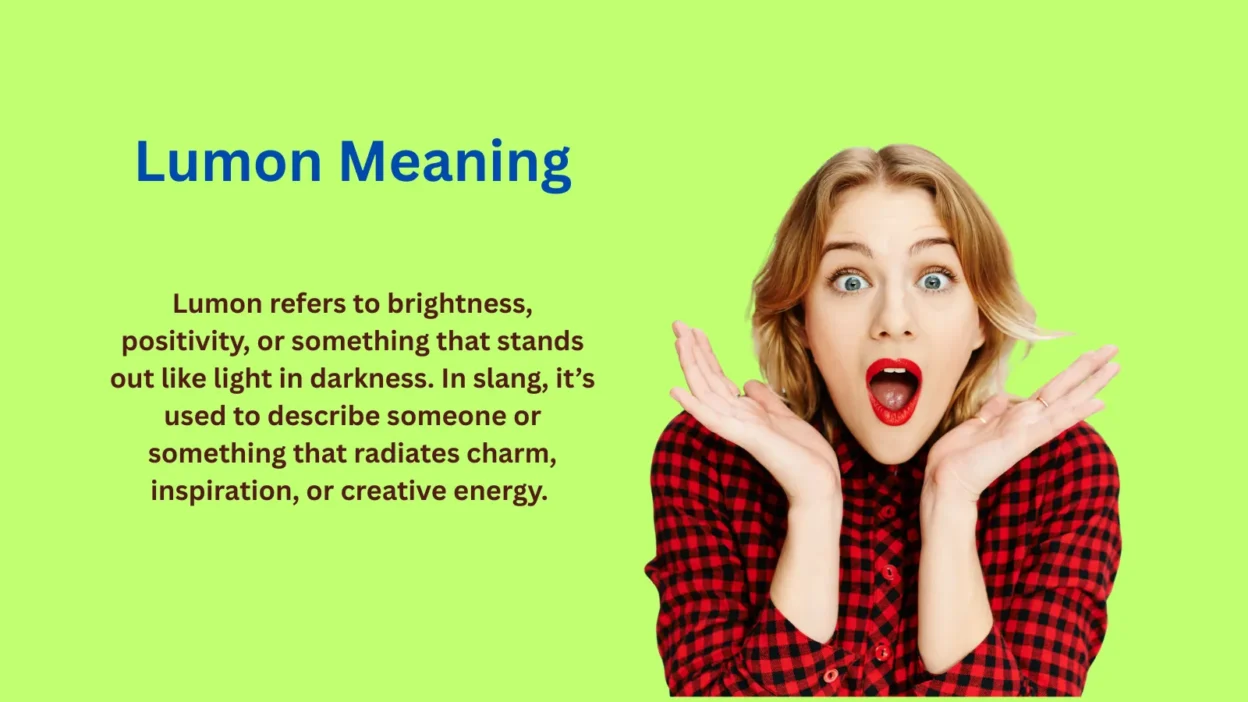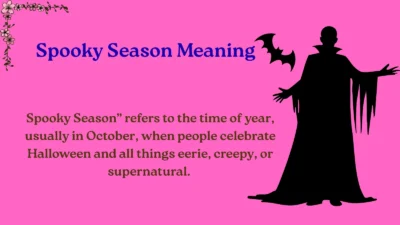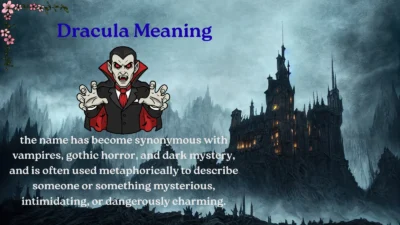Ever wondered about the true Lumon Meaning and why it’s suddenly trending across social media and pop culture?” Lumon means something bright, glowing, or enlightened — often used in slang to describe a person, idea, or vibe that feels radiant or inspiring. It comes from the root word “luminous,” which relates to light or brilliance. In casual conversation, calling something “lumon” suggests it stands out with positive energy or brilliance.
You might hear it used to describe a glowing aesthetic, a radiant personality, or a creative idea that shines. For example:
- “That outfit is so lumon — it totally lights up the room.”
- “She’s got a lumon vibe, always bright and uplifting.”
In this article, we’ll explore the meaning of lumon, how it’s used in modern slang, where it comes from, and examples to help you use it naturally in daily speech.
What Does “Lumon” Mean?
Lumon refers to brightness, positivity, or something that stands out like light in darkness. In slang, it’s used to describe someone or something that radiates charm, inspiration, or creative energy. The term captures the feeling of something glowing from within — both literally and emotionally.
Example Sentences:
- “Her smile was pure lumon — warm, bright, and unforgettable.”
- “That song is lumon; it just lifts your mood instantly.”
Key Points to Remember:
- Lumon is derived from luminous, meaning full of light or glowing.
- It’s often used in slang or creative contexts to describe people, art, or moments that shine with positivity.
- The word conveys warmth, brilliance, and inspiration, making it perfect for describing uplifting experiences or aesthetics.
Background & History
The origin of Lumon lies in Severance, the 2022 Apple TV+ sci-fi series. In the story, Lumon Industries is a biotech company that conducts strange memory experiments on its employees. The name “Lumon” evokes light (“lumen”) but also irony—since the company hides truth rather than reveals it.
As the series gained cult popularity, the term escaped the show’s universe. Viewers began using “Lumon” online to mock corporate culture, especially the kind that demands loyalty at the cost of individuality. Memes, TikToks, and Reddit threads soon turned “Lumon” into a metaphor for soulless jobs, dark humor, and capitalism.
By 2023, “Lumon” entered Twitter slang as a descriptor for anything overly structured or creepy-corporate. For instance, saying “This party feels so Lumon” might mean “It’s fake and uncomfortable.”
Usage in Various Contexts
“Lumon” can appear in a variety of ways online and offline.
1. In texting or chat:
Used to joke about dull jobs or robotic routines.
- Friend 1: “All meetings today are about compliance.”
- Friend 2: “Total Lumon energy.”
2. On social media:
Creators use it to describe eerie aesthetics, company culture, or dystopian humor.
- “This influencer house gives off Lumon vibes.”
3. In gaming:
Players sometimes use “Lumon” as slang for structured clans or overly strict moderators.
- “Our guild leader turned this place into Lumon HQ.”
4. In casual conversations:
People use “Lumon” when discussing modern work-life balance or corporate burnout.
- “Every office feels like Lumon these days.”
Common Misconceptions & Clarifications
1. Not a real company:
Some people assume Lumon exists—it doesn’t. It’s fictional.
2. Not a compliment:
Calling something “Lumon” usually implies a negative or cold feeling, not admiration.
3. Not only about work:
Though it started as workplace slang, “Lumon” can describe any controlling or secretive environment.
Example:
- Person A: “She tracks every text her boyfriend sends.”
- Person B: “Bro, that’s Lumon behavior.”
4. Not always serious:
Online, it’s often used humorously, not literally.
Similar Terms & Alternatives
| Term | Meaning | Tone/Use |
| NPC | Someone acting robotic or emotionless | Internet slang |
| Corporate-core | A vibe aesthetic tied to office monotony | Aesthetic trend |
| Dystopian | Bleak, futuristic, oppressive | Literary/cultural |
| Matrixed | Controlled by an unseen system | Tech/cyber slang |
People might say “This feels very corporate” instead of “This feels Lumon,” but the latter adds a pop-culture layer, referencing Severance’s eerie tone.
How to Respond to This Term
Depending on the mood, your response can vary:
Casual:
- “Haha, yeah, total Lumon vibes.”
Funny:
- “I’ll grab my Lumon badge and join the cult.”
Professional:
- “That seems like a structured environment.”
Privacy-conscious:
- “Let’s not go full Lumon here.”
Example:
- Coworker: “Our boss just added 10 more forms.”
- You: “Ah yes, Lumon protocol activated.”
Regional or Cultural Differences
While “Lumon” originated from American pop culture, its usage spread globally due to streaming platforms and meme culture.
- In Western countries, used in jokes about work, capitalism, and social detachment.
- In Asia (especially Japan and Korea): sometimes used in fan pages or forums for dystopian media comparisons.
- In Europe, seen as a commentary on surveillance culture or overregulation.
It’s not a traditional slang word—more a pop-cultural reference turned into slang.
Comparison with Similar Terms
| Expression | Similarities | Differences |
| Lumon | Cold, corporate, secretive | Fictional base from Severance |
| Big Brother | Surveillance & control | More political and Orwellian |
| Matrix-like | Simulated world | Focuses on illusion, not corporate life |
| NPC | Robotic behavior | Focuses on individuals, not systems |
Each of these shares Lumon’s themes of control, but “Lumon” specifically connects to corporate satire and emotional numbness.
Usage in Online Communities & Dating Apps
In digital spaces, “Lumon” is used both seriously and ironically.
- On Reddit or Discord, people describe “Lumon jobs” as dull or hyper-controlled workplaces.
- On Tinder or Bumble: users might joke, “Not looking for a Lumon relationship”—meaning no emotionless, businesslike vibes.
- On Twitter/X: it’s part of memes mocking modern office culture.
Example:
- Tweet: “WFH was great until HR turned Slack into Lumon.”
Tip: Use “Lumon” playfully, but not with people unfamiliar with Severance—it might confuse them.
Hidden or Offensive Meanings
“Lumon” is not offensive, but context matters.
If used toward someone personally (“You’re so Lumon”), it can sound insulting, suggesting they’re robotic or emotionless.
In most online spaces, it’s a sarcastic or cultural critique, not an insult.
However, using it in serious discussions about mental health or trauma can seem dismissive—so keep tone and context clear.
Suitability for Professional Communication
“Lumon” isn’t suitable for formal writing or workplace emails, since it’s pop-culture slang.
If you want to sound professional, use alternatives like:
- “Overly corporate”
- “Highly structured environment”
- “Mechanized workflow”
Example:
- Slang: “This place is so Lumon.”
- Professional: “The structure here is quite rigid.”
Use “Lumon” casually on social media or in friendly chats, but not in HR reports or job interviews.
FAQs
1. What does Lumon mean?
It refers to a fictional corporation from Severance, symbolizing control and an emotionless work culture.
2. Is Lumon a real company?
No, it’s entirely fictional.
3. Why do people say “Lumon vibes”?
They mean something feels cold, robotic, or overly corporate.
4. Is it offensive to call someone Lumon?
Not really, but it can sound insulting if used seriously.
5. Where did the term become popular?
It spread from Severance fans into memes and social slang.
6. Can I use it professionally?
No, it’s best for casual or creative settings.
7. What’s another word for Lumon?
Corporate-core, dystopian, or Matrix-like.
Conclusion
The term “Lumon” has captured attention online as more than just a word—it represents mystery, corporate intrigue, and cultural references inspired by the fictional Lumon Industries in Severance. In conversations, memes, or social media threads, using “Lumon” often signals inside knowledge, curiosity, or connection to the show’s themes.
Whether you’re discussing the series, sharing memes, or exploring internet slang, understanding Lumon meaning helps you stay in tune with pop culture and participate in conversations with confidence. It’s a word that combines fiction, intrigue, and modern internet identity, making it a unique addition to today’s slang vocabulary.





